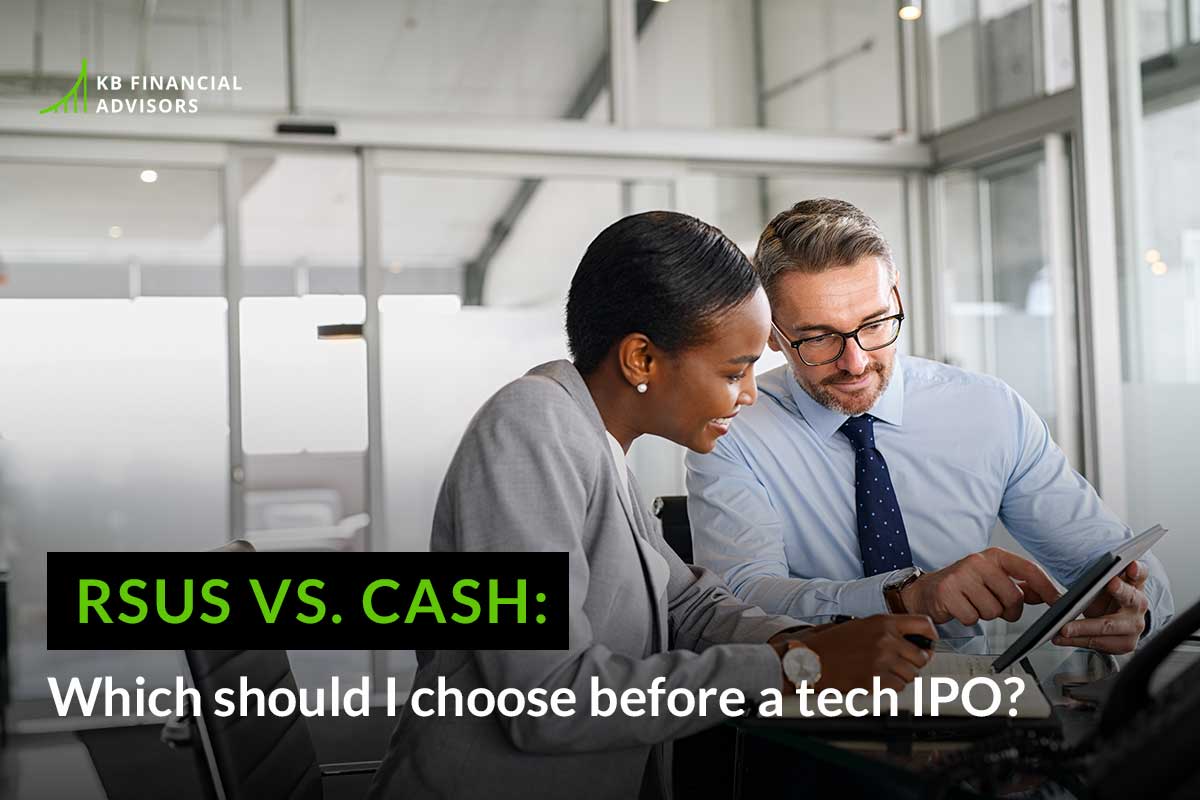Instacart employees can choose between cash and RSUs for their refresh grants this year. Here’s the smarter choice.
Today’s stock market has lost some steam, and it didn’t happen out of the blue. The shift can be traced back to historically quick reversals in U.S. monetary policy post-2021, along with dramatically increased interest rates. These factors caused a repricing of assets, namely in the stock market, and have ultimately spoiled the market’s appetite for initial public offerings.
Delayed IPOs have hit private tech companies especially hard, causing issues for their employees. An increasing number of firms — like Stripe, which I wrote about recently — are proactively mitigating financial havoc through varying means.
One of the latest companies to combat the side effects of its delayed IPO is Instacart. The grocery delivery firm recently announced a one-time choice program that’ll apply to refresh grants awarded during its upcoming annual review cycle. Instacart employees who receive a refresh grant in this timeframe have between April 3-18, 2023 to choose between receiving a portion of their annual refresh grants in cash, or receiving all their quarterly vests in the form of restricted stock units (RSUs).
Beyond Instacart, there are many tech companies who’ve been granting RSUs instead of options for a while now. I expect more companies to announce solutions for RSU-holding employees while saving their public debuts for a more favorable stock market. If you’re among the folks who thought their employers would’ve gone public by now, you’re probably thinking about the financial moves you should make as you wait for your postponed IPO to occur.
Whether you’re an Instacart employee or a tech employee at another firm who’s facing a similar decision, I’ll help you weigh your cash-versus-RSU choice below.
My bottom line advice
I typically approach these informative topics with details that build up to a financial recommendation, but today, I’m going to cut to the chase:
If you work at a pre-IPO company like Instacart and you can choose between cash or RSUs for your annual refresh grant, you should probably go with cash.
Why that advice? It boils down to risk.
I work on financial plans with clients of varying circumstances and goals, and one common thread that ties them is their overarching goal of reaching financial independence through a career replacement portfolio. Reaching financial independence means your job becomes optional rather than necessary, and you have enough financial security to take on more risk. It’s typically the founders and C-suite executives who can afford to take on more risk. The tech employees I work with are often still working toward financial independence, so I recommend they opt for the low-risk option of getting cash.
Instacart’s refresh grant decision is a bit more nuanced than simply choosing between cash or RSUs; if opting for cash, employees have a say in how much of their grants consist of cash. Another factor to consider is that the refresh grant in 2023 will have eight vesting events. You can choose to receive all eight vesting events as double-trigger RSUs, which are characterized by two things:
Until an IPO occurs,
- None of the shares from those RSUs will release
- There won’t be a taxable event
If you want an option with lower risk, you can choose to receive the first one, two, three, or four vesting events as cash. You can calculate how much cash you’ll receive for each vesting event by dividing half the value of your grant by the four vesting events. What makes cash a safer bet is its fixed nature. When opting for a cash payout, the amount you receive is set by the 409(a) value at the time of grant. You’ll receive the same amount of cash regardless of any changes to Instacart’s value between now and the four vesting events.
On the other hand, RSU payouts vary based on IPO timing and Instacart’s value as a publicly traded stock when its RSUs release. The value of your RSU payout would then determine the taxable event. The price you can eventually sell at in an open trading window will determine the value you ultimately receive.
The main takeaway here is you can know exactly what you’ll receive if you opt for cash, whereas opting for only RSUs leaves plenty of room for variability and risk.
Why cash?
Let’s dive deeper into the “why” behind my pro-cash rule of thumb.
If you’ve been working at Instacart for a while, your refresh grant will be a small portion of your overall equity in the company. By choosing cash, you’re effectively taking money off the table and allowing yourself to prepare for the company’s eventual IPO.
A more timely reason to opt for cash is the chance of a looming mass layoff. Although Instacart hasn’t announced plans to downsize at the time of writing, the odds of the company doing so can’t be ignored given the widespread layoffs that have rocked the tech industry. Having a substantial amount of cash on hand can help you prepare for the very real possibility of losing your job.
Opting for cash is also a good idea if you want to recycle your incentive stock options (ISO). If you have ISOs that are vested but unexercised, getting cash can give you the chance to exercise and hold those ISOs. This may also lower the amount of tax you’ll eventually pay on the post-IPO sale of the shares. If you decide to recycle options, make sure you account not only for the costs to exercise the options, but also the future costs of any AMT (alternative minimum tax) that you’ll owe from exercising your ISOs.
If you’re thinking about recycling your ISOs, a side benefit of doing that is increasing your regular income during the first four vesting events. This would widen the gap between your regular income tax calculation and your AMT calculation, increasing the amount of ISOs you can exercise without paying the AMT.
Lastly, you should opt for cash if you’ve already exercised and held all your ISOs. A few of my Instacart clients did this because they thought the IPO was right around the corner for the past couple years, and they ended up paying a ton of alternative minimum tax. If you’re in the same boat, you’ve now got the minimum tax credit (MTC) carried over from prior years. By opting for cash, you’ll increase your regular income during the first four vesting events, which will increase the gap between your regular tax calculation and your AMT calculation, ultimately allowing you to accelerate the use of that MTC.
Beware of supplemental withholding
Oftentimes, making a financial decision like this has nothing to do with taxes, but once you know which choice to make, you’ll want to be aware of the tax-related consequences.
I don’t ever want you or my clients to be scared of taxes; that’s not my goal here. I simply want you to be aware and empowered with the right tools.
If you elect to go with cash, you must be aware of supplemental withholding. Cash payouts in the first four vesting events will be treated as a supplemental wage, and unless Instacart gives you the ability to elect for additional supplemental wage withholding, they’ll most likely withhold the standard supplemental wage rate of 22%. Odds are you’re in a higher federal tax bracket than 22%, so don’t mistakenly assume the taxes Instacart withholds will be sufficient enough, and be sure to update your tax projection annually. I recommend working with a professional who understands these types of financial events and who can help you anticipate what you’ll owe next April through tax planning. The last thing you want is to be caught off guard by a large tax bill.
Cash is smart. Personalized advice is smarter.
Like I said earlier, my general piece of advice is to go for cash, but it’s never as simple as sticking to a general rule of thumb. Your situation is unique and things get complicated when multiple factors in a financial decision begin intermingling. The smartest thing you can do is weigh your options with financial and tax advisors who understand this topic and who can talk to you one-on-one to provide personalized advice.
Book a call today to talk to myself or another expert on our team to sort out your cash-versus-RSU dilemma.






